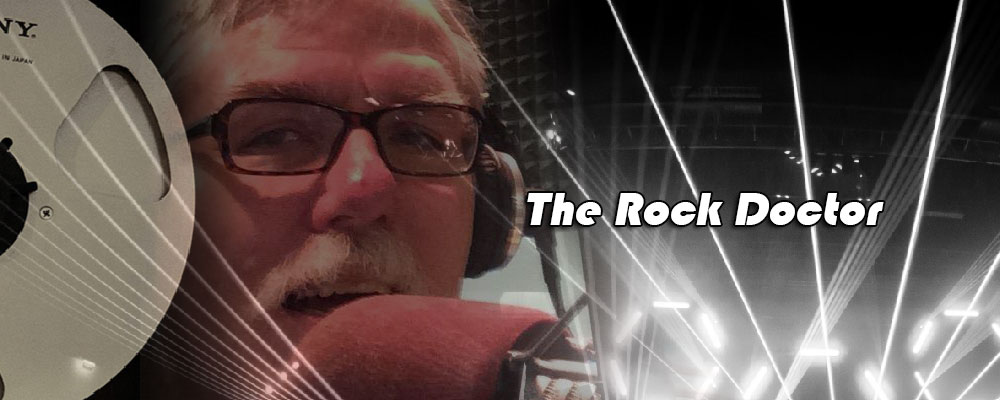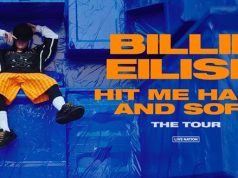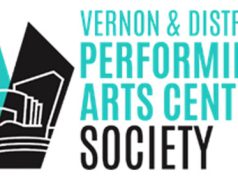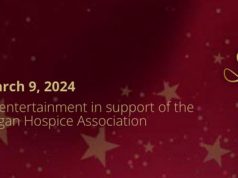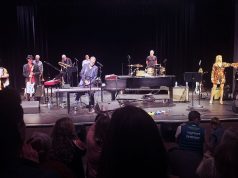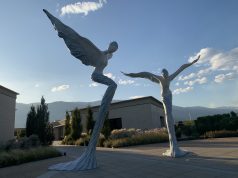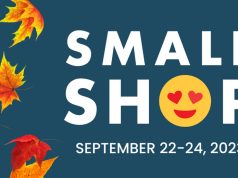Somewhere in the last half of May, I got an email from Sony Music asking if I’d like to chat with Joe Satriani. I had last spoken to him in 2010 and it was such an enjoyable experience I said “yes” right away. Sony were nice enough to provide me a stream of Joe’s forcoming album “Shockwave Super Nova”, due out July 24th, so we could talk about the new record too. I was given 15 minutes, and in that time we covered a surprising amount of ground. Joe called me June 3rd at precisely 11:15am Alberta time (I’m in the Lloydminster area), and here’s how it went…Good to talk to you again Joe. You won’t remember this I’m sure, but we talked back in 2010 when you released your Live In Paris album.Oh- well, nice to talk to you again!Likewise! Before we get started on the interview here, I’d like to… I just wanted to pass along a hello from my guitar teacher Grand Redl, he said he met you at concert in Edmonton in 2008- he’s a huge, huge fan.Oh that’s cool- tell him I said hi!I will, he even plays some of your gear. Now I know you don’t have a lot of time here, so let’s just get right into it. Alright.Last we spoke, you said you were inspired to play by Jimi Hendrix. Now just briefly, how has he influenced your playing? Your style seems so studied and technical, and Jimi is such a free form player.You know it’s funny, I never think of myself as a technical player at all. I’m just a kid that was really stuck in between the jazz age, the blues, rock & roll, metal, you know, because of when I was born and when I started playing guitar. I have quite a few friends who are amazing players, extremely technical, play rings around me, like Steve Vai and John Petrucci, Guthrie Gauvin. Guys like that, to me, always seem to have much more command of the technical facility. I tend to concentrate on writing melodies, and then if the song requires me to play something difficult to make the song work, then I’ll teach myself how to do it. I actually go on a song by song basis. I don’t actually work on technique independent of composition.That’s seems to be a fair way to go about it. (both chuckle) Just quickly, one of your earlier albums- the one coming out is your 15th, I believe…Yeah, that’s right…I was wondering if you could talk briefly about 1989’s Flying In A Blue Dream. A great album for me, it was where I really found your music thanks to songs like Mystical Potatohead Groove Thing, Big Bad Moon and the title track. As I was researching for this interview, I read on Wikpedia that it was partly inspired by your dad’s passing. Is that true, and if so, how did it affect the record, do you think?That period of time was extremely difficult, because my father had previously, a few years earlier, had already suffered a debilitating stroke, and he unfortunately suffered another one as we were sort of in the middle of that record, the first third of it. It was a massive stroke. He went into a coma and he had told us earlier that if it ever happened again to let him go immediately, because he said the experience of the first one was so completely horrible, and he truly felt that once it happened he was gone. And so, however, in New York State we weren’t actually allowed to act on his wishes immediately, so he stayed in that state right up until, I guess the week we were working on the song I Believe, which was in July. It was very difficult for my whole family, the long protracted saying goodbye. And there were I suppose… dealing with losing your father while you’re trying to work on what you think is your most important artistic statement up to that point, was something that was traumatic beyond anything I had experienced before. To add to that, that year had two other things happen to me that were very unusual, which was I contracted the intestinal parasite Giardia a few months before starting the record, when I was on tour with Mick Jagger in Indonesia, and it went undiagnosed for the whole year. So I was in and out of the hospital, and doctors were trying to figure out what was wrong with my gut! (laughs) And it didn’t get solved until I was in rehearsals in January of 1990 for the tour! It was a difficult year dealing with that alone, then of course I had a problem with my teeth. At the beginning of the record project, I decided to get these braces put on to try to correct a bite problem…Uh-huh…These things all conspired to… it’s funny, when you’re hit with so much adversity physically, and then of course the most devastating thing was dealing with my father’s condition from the emotional side, it really gets you to focus, in a strange way because you realize you’re just one step away from completely losing it and having to drop all your responsibilities. So I always thought that, you know, my dad’s encouragement my whole life, to be the best musician I could be, and to always stand up to adversity, was the thing that kept me going. And so it was this spirit that really carried me through a difficult period that turned into Flying In A Blue Dream.I was just thinking of that song as you were talking about your dad, and I can relate what you’ve just been talking about, because I lost my mom in ’84 and my dad in ’87 to cancer. It seems you’re just starting to get your feet back under you from one thing and then something else happens. Yeah…But sometimes out of such adversity comes great work and beautiful music.That’s true, yeah.Now, when you go into the studio to record, whether it’s for the new album or anything you’ve ever done, I imagine that you and your band are fairly well rehearsed. Does anything surprise you while recording, or is it more of an organic studio thing? How is that process for you?Oh we’re never rehearsed! The only record I think we ever rehearsed for was Crystal Planet. And that was because I didn’t make any demos. I decided, as a change of pace for that record, to bring Jeff Campitelli and Stu Hamm to a rehearsal room and to show them the songs on paper. So the first time we heard any of the songs is when we played them. It was a very interesting way of sort of starting fresh. But every other record starts with demos and even recordings that I’ve started at home that become the template for adding performances. So in this particular case, you know, we actually met and started recording immediately. There were no rehearsals. We’d get to the studio 10:30 in the morning, people would listen to a track that I decided we were gonna work on, then people would fiddle around for about an hour or so and then we’d say “okay, let’s start recording.” And everyone was encouraged to give me different kinds of performances. They could try different instruments, different styles, just to see what was interesting. And then after a few hours we’d sit back and listen to everything and pick what we thought was the best. And then the next day we’d move on to another song. I’ve done a lot of records like that, it really helps.That’s the process for Shockwave Super Nova?Yes.Cool! It doesn’t come out ‘til July 24th, but Sony was nice enough to supply me with a stream so I could listen before the interview. Kind of a different sounding album for you, almost, and I wasn’t really surprised to learn that some of these songs were written, apparently, for Chickenfoot, or with them in mind, were they not?Actually, just two. One of them, a song called Crazy Joey, never even got out of my little studio! (chuckles) It was something I wrote on bass one day when I was thinking about writing a template for Chad Smith to sort of pour his personality over, you know? He’s got a really big, gregarious, crazy kind of upbeat drummer attitude. So I wrote this very simple song with just three chords, it’s very upbeat and friendly, it was gonna give him a lot of room to be expressive. Then when I finished the song in its structure, I realized there was really no good place for Sam to sing, and I thought “Well he’s never gonna want to do it.” So then I looked at it a second way and thought “Well what if it was an instrumental?” and I changed the focus from the drums to the guitar, and then it became Crazy Joey. The other song was a more recent composition called All Of My Life. This came at a period when Sammy and I were thinking that if we couldn’t get Chickenfoot together to record, that maybe the two of us would a more stripped down blues influenced style record, and so I wrote a number of songs that didn’t have elaborate bridges, or six different parts for all the other musicians. It was more like some of the modern blues that’s coming out of Nashville, a sort of retro approach where the song structure is much simpler. And I had created this demo, and I played the melody but in very subdued ways so Sammy would know what I was thinking about melodically. Neither of those projects ever happened- there was no Chickenfoot, there was no blues record with Sammy, and I happily took the song back and said “Boy this sounds really interesting because I never play in such a subdued way.”I was gonna say that’s one of the tracks I had in mind when I say this is a different sounding album for you.Yeah, it’s very different. And we didn’t really know we were gonna bring in Bobby Vega on bass and Tony Mengovar on percussion. It wasn’t until the last week of overdubs, towards the end of the records, where I said “I should just let this song go where it wants to go!’ (both chuckle) And so we added some musicians that really brought it to an even more different place than I’d ever shown people, but I think it made the musical moment more interesting and evocative.When I heard the title track, which leads off the album, I thought for sure that was something for Chickenfoot because I could almost hear Sammy singing something on it.Yes, yeah, it could be. He loves songs where the band stops and he gets to sing. It’s a typical Sammy Hagar song form that he really feels good about, especially when he’s in front of an audience. He’s a great lead singer, a great front man, he’s got really interesting sensibilities about what works in front of 40,000 people. He has a lot of experience doing stadiums and arenas. It’s funny, that song never had that arrangement. It actually had a different verse section, and chorus section. I toyed around with that, and then at the last minute I completely flipped it upside down and I created what you hear as the main verse where the whole band stops. It’s funny, I hadn’t thought about that it was very Sammy Hagar-like, but now that you mention it, it could’ve been! (laughs)Yeah, it sort of reminded me of Soap On A Rope…Yes! Yeah! Well it’s funny- that song, Soap On A Rope, got started because Sammy and I were having a writing session one day, and he just happened to mention off the cuff, very casually that “Oh it would be great if we had a song where the band played and then stopped, and I sang” or whatever. And then went on talking about something else. And then when I got home I went “Oh I got an idea for that” and I brought in the demo and showed everybody, and we recorded it in, like, 10 minutes. It was done. (both laugh) Funny how those things happen.Yeah. The new album of course, again, comes out July 24th, Where did you record, and roughly how lnog of a process was it for you?Well there were a lot of guitar and keyboard things that were recorded at my home studio in the months leading up to January of this year, and I brought all of that session material to Skywalker Sound which is the studio that George Lucas built at his ranch, the Skywalker Ranch in Northern California, just about 45 minutes outside the city where I live, in San Francisco. We spent about 3 weeks there, and then we moved to 25th Street Recording in Oakland, which is over across the other bridge in the Bay area, a little bit closer to me. Beautiful new API studio, and we did all the overdubs there. There was quite a lot of guitar, percussion, things like that, that had to get done there. And the album has quite a cast, because there’s 4 songs that have Vinnie Caliutta and Chris Cheney on drums and bass… the rest of the material has got Marco Minimen on drums, Brian Beller does MOST of the bass guitar, I’m on bass I think 3 songs, I mentioned Bobby Vega’s playing bass on one song. Mike Kineally’s doing all the really good keyboard work I like to point out because I don’t REALLY play keyboards! (both laugh) So anytime you hear a keyboard that sounds like it’s professional, it’s definitely Mike! Anything that’s really slow, I can do!Yeah, chords and stuff right?Yeah.Our time is running out, but really quickly I just want to ask about something I’ve heard. Since Chickenfoot doesn’t seem to be going anywhere at the moment, I heard mention that you might be thinking about putting something similar together with other people. Is there any truth to that or is it just sort of a passing thought?I get some interesting offers now and then from different artists who are feeling the same way, who are looking to do something different. I mean we’re always thinking it might be fun to work with somebody completely different outside the genre, almost in the way that Chickenfoot was a crazy idea to begin with. It looks like Chickenfoot is not going to see the light of day for quite a while, if ever, I just feel like I’ve got all this energy that’s sitting in that sort of classic rock band style, and I’d love to bring that music out. Maybe it’s not a rock band, maybe it’s some other kind of thing I haven’t thought of, but it’s something that… I like to keep busy, I like to stay as creative as possible, so yeah, I’m looking to do some collaborations.Maybe put something together after your upcoming tour…Yeah. You know, the way that it works in the music business is that you just gotta keep doing lots of things at once. It’s never easy, it’s always chaotic, that’s just normal. (both laugh)
